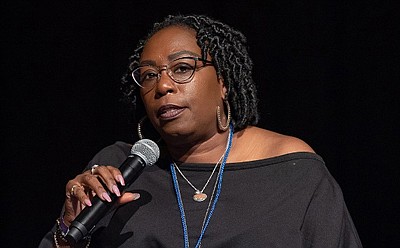In 1997, Gail Graham was diagnosed with HIV. Graham, who currently serves as the Director of HIV/AIDS Outreach Services and Ministry at Mt. Lebanon Baptist church in Baltimore says it was her church pastor’s acceptance and support that resulted in her taking an active role at the church.
In 2014 she joined an HIV/AIDS clinical trials group at Johns Hopkins Hospital and, because she was motivated to do more, Graham joined a clinical trial at the National Institutes of Health (NIH).
Thanks to major advances in medical research, Graham says her disease is now undetectable and not transmittable.
For those battling serious diseases, researchers say the opportunity to participate in a clinical trial can be a lifeline. However, for many, deciding whether or not to participate in a clinical trial can be difficult. There are a lot of unknowns like— Why should I do it? Are there side effects? Will participation disrupt my job and affect my health coverage? How far will I need to travel? Will I receive the results of my clinical trial?
Those questions led Kenneth Getz, the founder of CISCRP (Center for Information and Study on Clinical Research Participation) and deputy director and research professor at the Center for the Study of Drug Development at Tufts University School of Medicine, wrote, “The Gift of Participation: A Guide to Making Informed Decisions About Volunteering for a Clinical Trial.”
Many have called it the ultimate guidebook for patients and their support network.
The book, which is available at Amazon.com and other outlets, offers critical information on what to expect, where to find trials, and what questions to ask.
CISCRP, whose motto is Education Before Participation, routinely celebrate research participants like Graham. They call the participants, “medical heroes.”
“Today, nearly 4,000 new medical therapies are in active clinical trials. The success of these medical advances— ultimately measured by improvements in the quality of patients’ lives and by the availability of new treatments and cures for unmet medical needs— depends on the millions of people who participate in clinical trials each year,” Getz said. “We call these brave individuals like Gail Graham ‘medical heroes.’”
“Ordinary people like you and me who have chosen to give the extraordinary gift of participation in clinical research,” Getz said. “Their decision to participate is a selfless act because participation always carries risk and will likely not provide any direct personal medical benefit. Future generations are the direct recipients of the gift of participation. Medical heroes— through their participation and partnership with the clinical research enterprise— profoundly contribute to society’s collective knowledge about the nature of disease, its progression and how and how not to treat it.”
Graham says clinical trials are vital and her journey has made her a believer.
“On April 29th 1997, I found out at work that I was HIV positive. I was the supervisor of admissions for Kennedy Krieger Institute Neurobehavioral program, and my first thought was, ‘God please, I just want to live long enough to see my kids graduate high school,’” Graham said.
She wondered how she would tell her children.
“I made a point of learning as much as I could and still can about this virus and the disease, and I had a great boss who supported me,” Graham said. “I was open with Human Resources and they worked with me and gave me all the exceptions to use regarding leave and sick days. My best friend learned with me and has continued to be by my side unconditionally.”
Now, in her role as director of HIV/AIDS Outreach Services and Ministry, Graham says she remains busy assisting others.
“For the last eight years we have had a World AIDS Day testing for turkey event. The last Saturday of November we provide free testing counseling gently used clothes blood pressure screening and any other services that we can obtain for the community,” Graham said. “HIV is no longer considered a death sentence. With proper treatment, you can become undetectable (level of HIV virus so low it can’t be detected).
“If you keep taking your medication and maintain your undetectability, the risk of you passing it to others is zero.”
